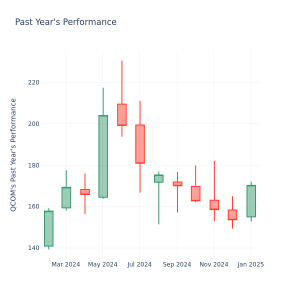
Milanes Douglas J, SVP at Darden Restaurants DRI, disclosed an insider sell on September 25, according to a recent SEC filing.
What Happened: According to a Form 4 filing with the U.S. Securities and Exchange Commission on Wednesday, J sold 5,705 shares of Darden Restaurants. The total transaction value is $981,495.
Darden Restaurants shares are trading up 0.45% at $168.87 at the time of this writing on Thursday morning.
All You Need to Know About Darden Restaurants
Darden Restaurants is the largest restaurant operator in the us full-service space, with consolidated revenue of $11.4 billion in fiscal 2024 resulting in 3%-4% full-service market share (per NRA data and our calculations). The company maintains a portfolio of 10 restaurant brands: Olive Garden, LongHorn Steakhouse, Cheddar’s Scratch Kitchen, Ruth’s Chris, Yard House, The Capital Grille, Seasons 52, Eddie V’s, Bahama Breeze, and The Capital Burger. Darden generates revenue almost exclusively from company-owned restaurants, though a small network of franchised restaurants and consumer-packaged goods sales through the traditional grocery channel contribute modestly. As of the end of its fiscal 2024, the company operated 2,031 restaurants in the us.
Unraveling the Financial Story of Darden Restaurants
Decline in Revenue: Over the 3 months period, Darden Restaurants faced challenges, resulting in a decline of approximately -6.77% in revenue growth as of 31 August, 2024. This signifies a reduction in the company’s top-line earnings. As compared to its peers, the revenue growth lags behind its industry peers. The company achieved a growth rate lower than the average among peers in Consumer Discretionary sector.
Key Profitability Indicators:
-
Gross Margin: The company faces challenges with a low gross margin of 20.41%, suggesting potential difficulties in cost control and profitability compared to its peers.
-
Earnings per Share (EPS): The company excels with an EPS that surpasses the industry average. With a current EPS of 1.75, Darden Restaurants showcases strong earnings per share.
Debt Management: Darden Restaurants’s debt-to-equity ratio is below the industry average. With a ratio of 2.48, the company relies less on debt financing, maintaining a healthier balance between debt and equity, which can be viewed positively by investors.
Insights into Valuation Metrics:
-
Price to Earnings (P/E) Ratio: Darden Restaurants’s P/E ratio of 19.39 is below the industry average, suggesting the stock may be undervalued.
-
Price to Sales (P/S) Ratio: The current P/S ratio of 1.77 is below industry norms, suggesting potential undervaluation and presenting an investment opportunity for those considering sales performance.
-
EV/EBITDA Analysis (Enterprise Value to its Earnings Before Interest, Taxes, Depreciation & Amortization): With a lower-than-industry-average EV/EBITDA ratio of 13.88, Darden Restaurants presents a potential value opportunity, as investors are paying less for each unit of EBITDA.
Market Capitalization Highlights: Above the industry average, the company’s market capitalization signifies a significant scale, indicating strong confidence and market prominence.
Now trade stocks online commission free with Charles Schwab, a trusted and complete investment firm.
Why Insider Activity Matters in Finance
Considering insider transactions is valuable, but it’s crucial to evaluate them in conjunction with other investment factors.
Exploring the legal landscape, an “insider” is defined as any officer, director, or beneficial owner holding more than ten percent of a company’s equity securities, as stipulated by Section 12 of the Securities Exchange Act of 1934. This encompasses executives in the c-suite and major hedge funds. These insiders are required to report their transactions through a Form 4 filing, which must be submitted within two business days of the transaction.
Highlighted by a company insider’s new purchase, there’s a positive anticipation for the stock to rise.
But, insider sells may not necessarily indicate a bearish view and can be motivated by various factors.
A Closer Look at Important Transaction Codes
When analyzing transactions, investors tend to focus on those in the open market, detailed in Table I of the Form 4 filing. A P in Box 3 denotes a purchase,while S signifies a sale. Transaction code C signals the conversion of an option, and transaction code A denotes a grant, award, or other acquisition of securities from the company.
Check Out The Full List Of Darden Restaurants’s Insider Trades.
Insider Buying Alert: Profit from C-Suite Moves
Benzinga Edge reveals every insider trade in real-time. Don’t miss the next big stock move driven by insider confidence. Unlock this ultimate sentiment indicator now. Click here for access.
This article was generated by Benzinga’s automated content engine and reviewed by an editor.
© 2024 Benzinga.com. Benzinga does not provide investment advice. All rights reserved.




